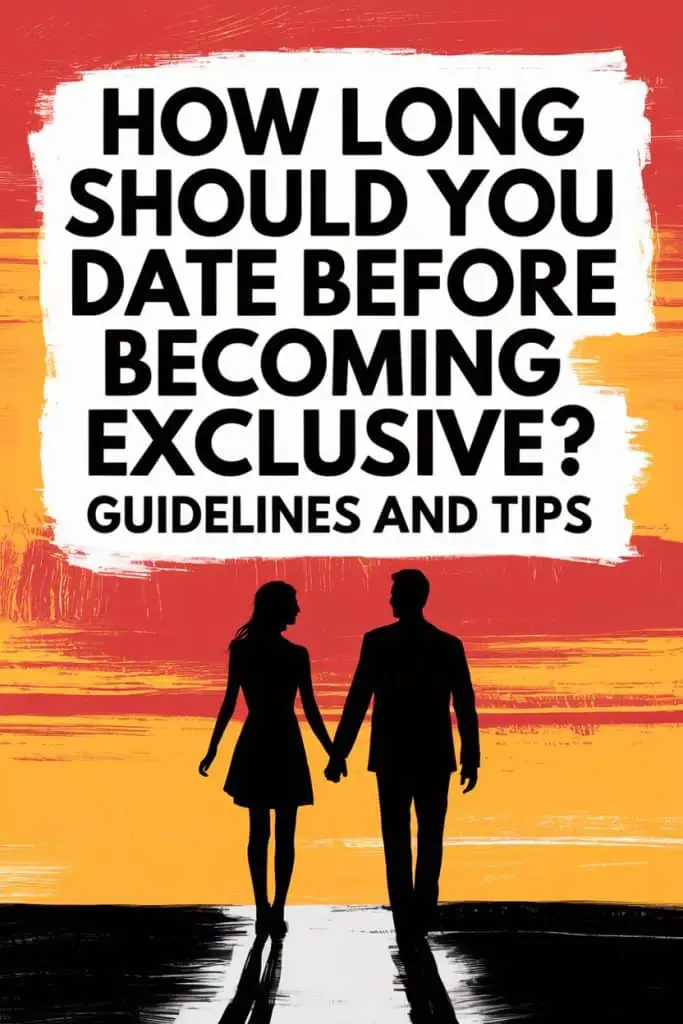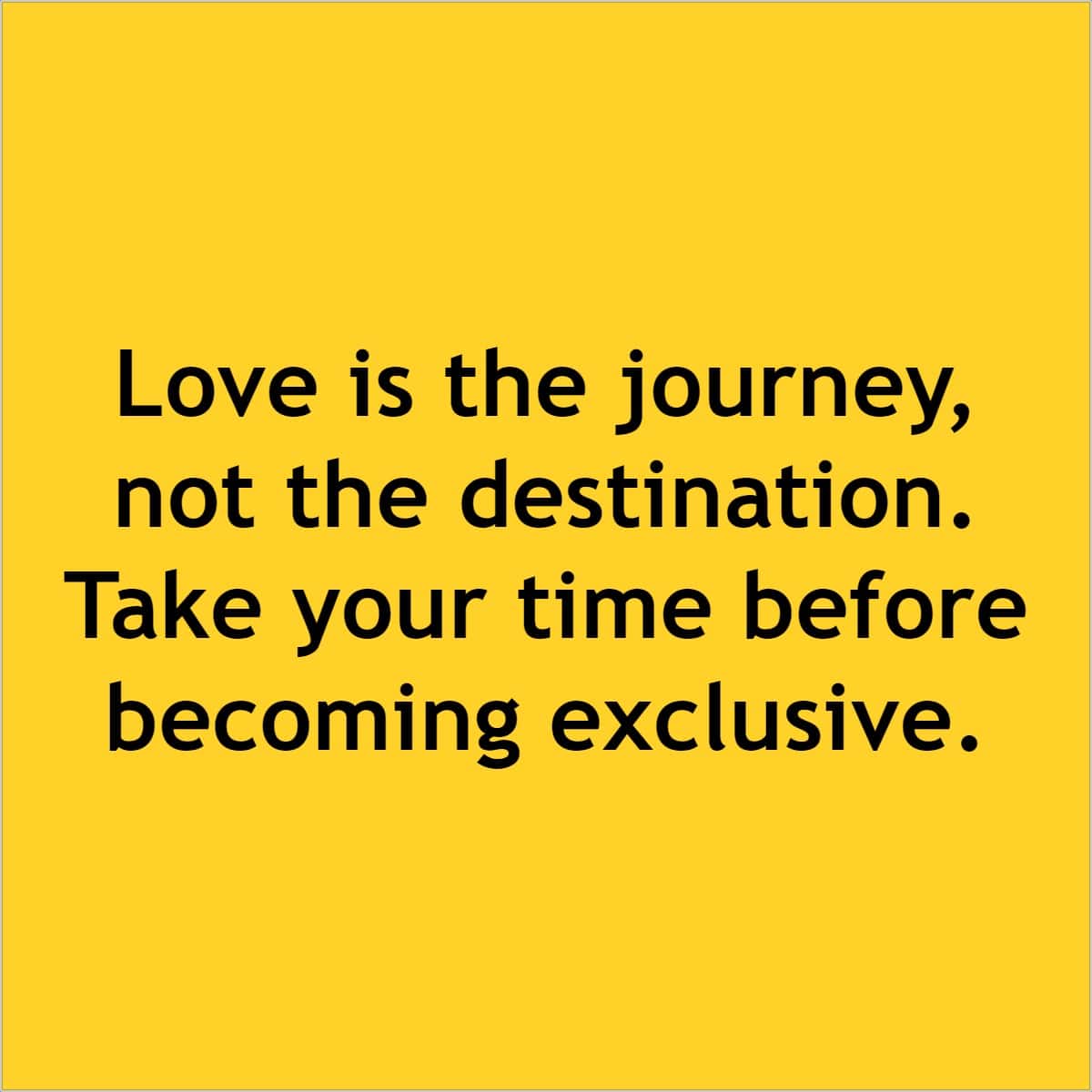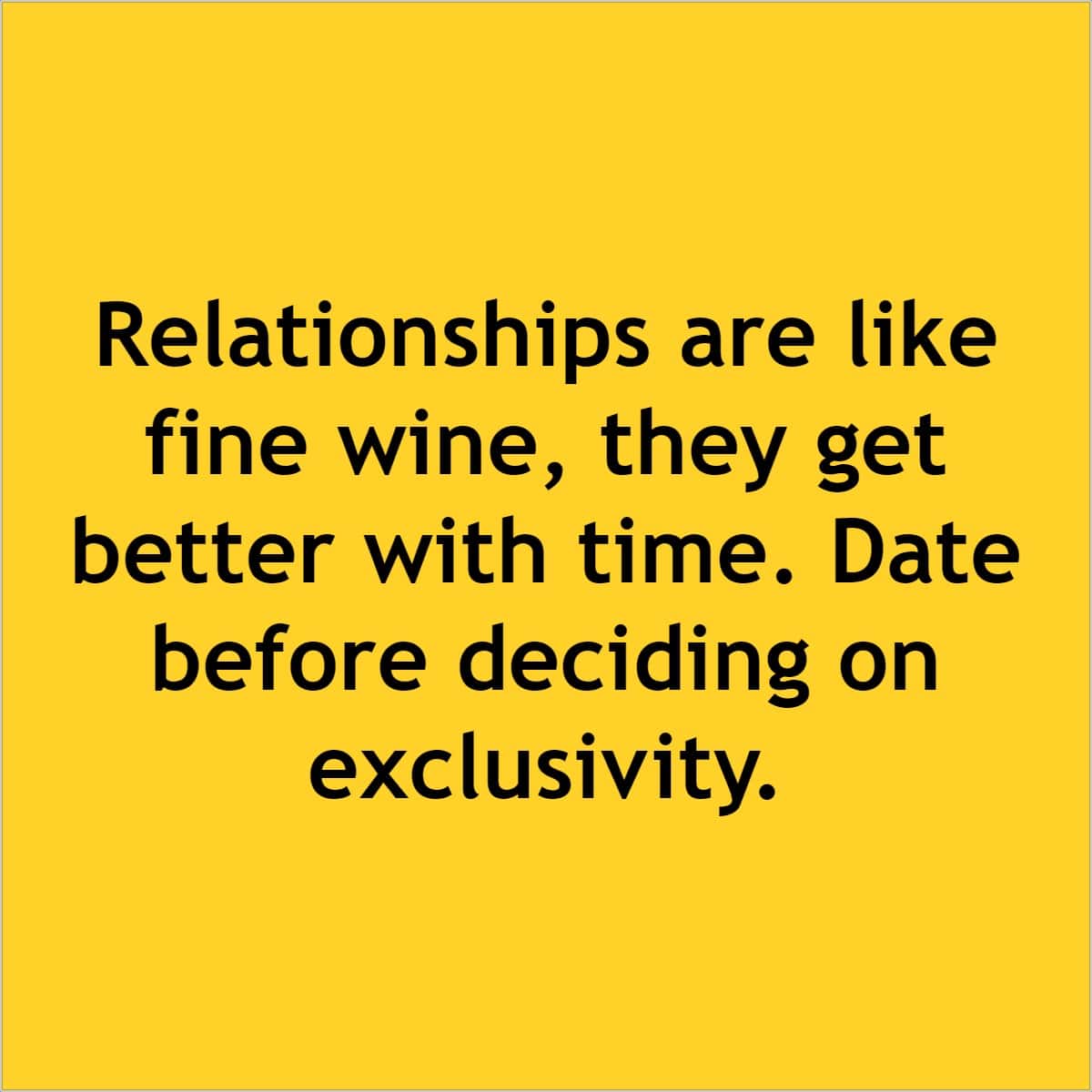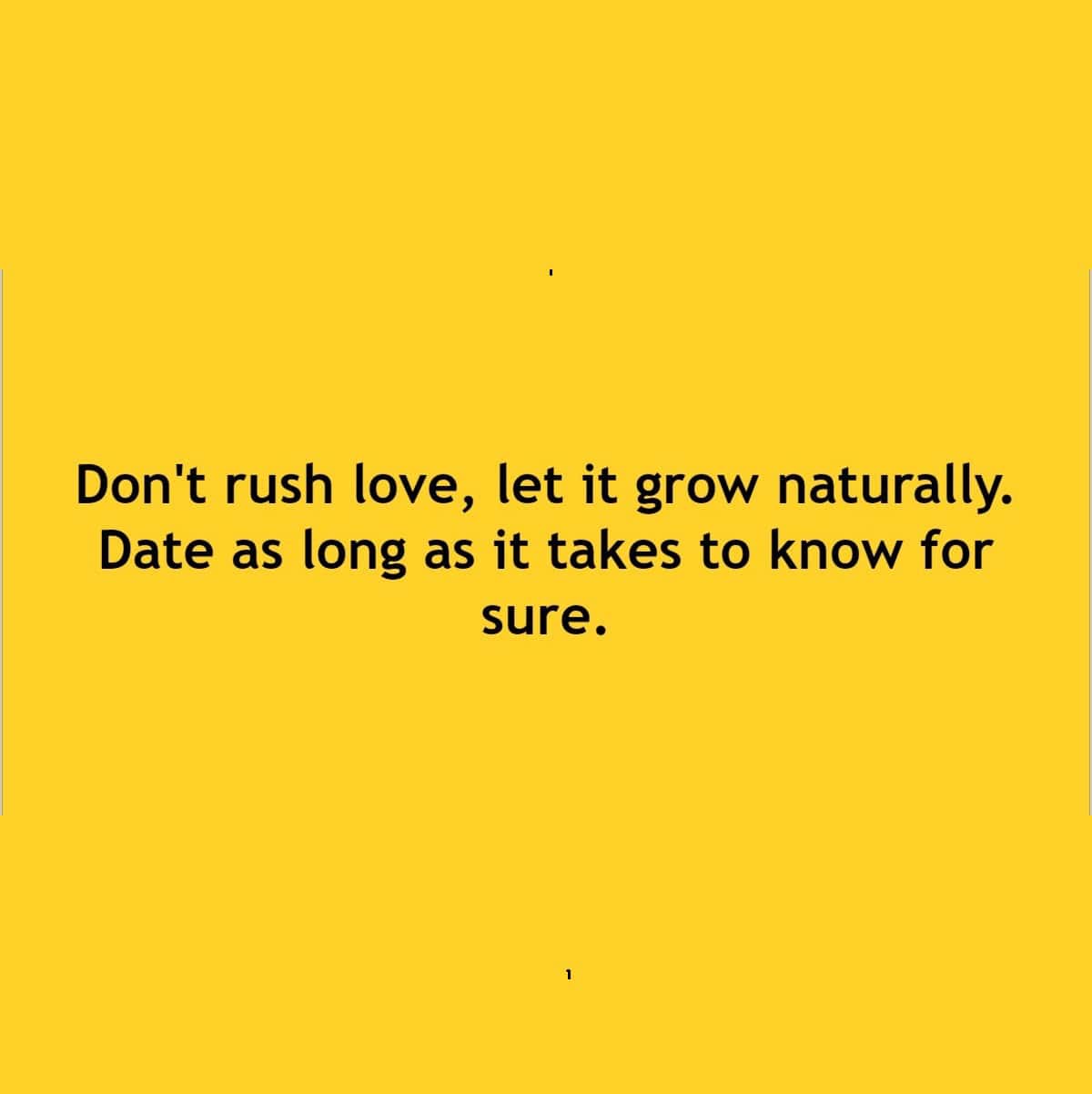Being exclusive means you’re committed to dating only each other. It indicates you’ve decided to stop seeing other people and focus on building your relationship.
You and your partner agree to partner exclusively, establishing boundaries that align with mutual expectations. Examples include not using dating apps and not flirting with others.
The Significance of Exclusivity in Relationships
Exclusivity signifies a deeper level of commitment. It enhances trust and opens the door for more profound emotional connection. When both partners commit to being exclusive, it demonstrates readiness for a serious relationship.
The agreement builds a foundation for future plans, like traveling together or meeting each other’s families.
In dating, achieving exclusivity serves as a milestone and brings stability. It transforms the dynamic from casual to serious, fostering a sense of security.
Factors Influencing the Timing of Exclusivity
Age and Relationship Goals
Age plays a critical role in deciding when to become exclusive. Younger individuals, often in their late teens or early 20s, usually prioritize exploration and experience over settling down. They might take longer to become exclusive, valuing variety and self-discovery in their dating lives.
Conversely, individuals in their late 20s and beyond generally seek stability and serious commitment. They tend to move towards exclusivity faster, given a clear alignment of relationship goals.
Relationship goals significantly impact exclusivity timing. If both partners seek long-term commitment, exclusivity may occur sooner. On the other hand, differing goals can delay or complicate exclusivity decisions.
Clarity on relationship intentions, whether short-term enjoyment or long-term partnership, helps define the appropriate timing for exclusivity.
Cultural and Social Considerations
Cultural norms strongly influence dating and exclusivity timelines. In some cultures, the transition to exclusivity happens quickly due to societal expectations of early commitment.
Other cultures may encourage extended dating periods to ensure compatibility before exclusivity. Understanding your partner’s cultural background can offer insights into their expectations regarding exclusivity.
Social circles also affect when to become exclusive. Friends’ and family’s opinions, often shaped by personal experiences and societal norms, can influence your decision.
Positive reinforcement from your social circle might persuade you to become exclusive sooner. Conversely, skepticism from loved ones could delay your decision, prompting more cautious progression.
It’s essential to balance external opinions with your personal comfort and relationship dynamics.
Common Milestones Before Going Exclusive
The Role of Communication
Effective communication sets the foundation for moving towards exclusivity. Regular, open discussions about your relationship status, expectations, and future plans clarify where both of you stand.
If conversations about exclusivity flow naturally, it’s a positive sign you’re both on the same page. Consistent communication about past relationships and personal boundaries also builds trust, preparing you for a committed relationship.
Meeting Friends and Family
Introducing each other to friends and family often signifies a deeper commitment. These introductions show you’re integrated into each other’s lives and seek approval from loved ones.
You’ll get a glimpse of how your partner interacts in a broader social context. If these meetings progress positively, it suggests readiness to become exclusive. Also, mutual friends often observe relationship dynamics, providing valuable insights or feedback.
Tips for Discussing Exclusivity
Choosing the Right Time to Talk
Choose the right time and place carefully. Bring up exclusivity when both of you have time for a meaningful conversation, not when you’re tired or distracted.
Ideally, discuss this in a private setting where you feel comfortable. Timing matters: if the relationship is new, avoid rushing the conversation.
Examples of good timing for exclusivity talks:
- After several dates
- When you feel a deep emotional connection
- During a calm, uninterrupted setting
Communicating Your Expectations Clearly
Clearly express your relationship expectations. Be honest about what exclusivity means to you, and ensure your partner understands your viewpoint. Leave room for them to share their thoughts and feelings too. This dialogue helps set mutual expectations.
Key points in communicating exclusivity:
- Define what exclusivity means to you
- Discuss physical and emotional boundaries
- Ensure mutual understanding and agreement
Effective communication about exclusivity fosters a healthy, committed relationship.
Final Thoughts
Deciding when to become exclusive is a personal journey influenced by various factors. It’s essential to communicate openly and ensure both you and your partner are on the same page.
By understanding each other’s expectations and taking the time to build a strong emotional connection, you’ll create a solid foundation for a committed relationship.
Remember to listen to your instincts and prioritize what feels right for you both.





